Researchers in the Vallance Lab
The Vallance Lab team is made up of Graduate and Undergraduate Students, Postdoctoral Fellows, Research Associates, and Lab Technicians.

Dr. Bruce Vallance
Principal Investigator
Dr. Vallance completed his PhD training in gastrointestinal inflammation at McMaster University in Hamilton, Ontario, and then moved to Vancouver in 1999 to pursue his postdoctoral studies on disease-causing bacteria. Dr. Vallance was recruited to the University of British Columbia and BC Children’s Hospital as assistant professor in 2003. He has won numerous awards and currently holds the CHILD Foundation Chair in Pediatric Gastroenterology. Dr. Vallance’s research focuses on microbe-host interactions within the intestine, including defining the role that gut microbes play in causing chronic intestinal inflammation, as seen in Inflammatory Bowel Disease patients. Dr. Vallance is responsible for overseeing Gut4Health and fulfilling its mandate to become a key resource for microbiome researchers throughout Vancouver.
Awards
- Canada Research Chair in Pediatric Gastroenterology (Tier II) – 2004-2009
- CH.I.L.D. Foundation Chair in Pediatric Gastroenterology – 2013-ongoing
- Canadian Children Inflammatory Bowel Disease Network, CIHR and CH.I.L.D Foundation – 2013

Dr. Andy Sham
Gut4Health Project Manager
Dr. Andy Sham is the project manager for the Gut4Health Microbiome Core facility. Dr. Sham grew up in Vancouver, where he attended the University of British Columbia (BSc in Cell Biology and PhD in Experimental Medicine). His PhD research focused on bacterial pathogens and the interplay between bacteria and host at the gut lining to maintain intestinal health. He continued his research training as a Postdoctoral Research Fellow at Harvard Medical School where he studied how small molecules resolve inflammation in the lungs. After returning to Vancouver from Boston, he worked as a research scientist with a local biotech company where he led their research team in developing new drugs for the treatment of inflammatory bowel disease. Dr. Sham is responsible for conceiving and developing projects as well as the general operations for the core.

Dr. Hyungjun Yang
Research Associate
I am a research associate specializing in mucosal immunology and animal model. I have been studying immune responses to bacterial infection at mucosal sites. Also, I’m interested in establishing an animal model for human-oriented pathogens. Currently, I am focusing on E. coli pathobionts isolated from UC patients and how pathobionts contribute to intestinal inflammation through the mucus barrier impaired by genetic or environmental factors.

Qiaochu Liang
Research Associate
My current work focuses on characterizing epithelial barrier functions in both healthy and diseased conditions, with a particular emphasis on the mucus-epithelium interface and the impact of enteric infections, inflammatory bowel disease (IBD), and gut dysbiosis. I have developed multidisciplinary approaches to investigate host mucosal responses and the complex host-microbiota-pathogen interactions in mouse and organoid models at both cellular and molecular levels. Additionally, I work on projects aimed at building and optimizing in vitro multi-cell type platforms using patient-derived primary cell organoids for disease modeling and therapeutic testing.
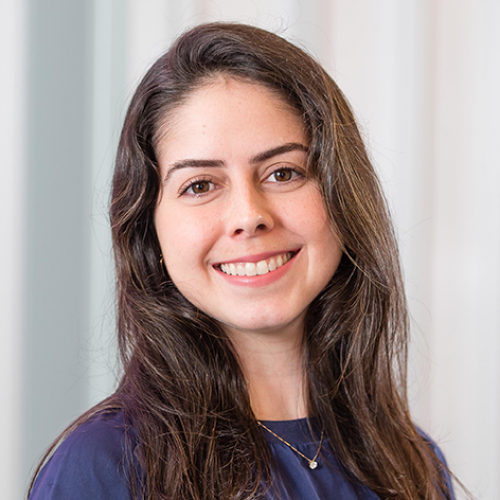
Dr. Larissa Celiberto
Postdoctoral Fellow
My background includes a BSc in Nutrition and Dietetics and a MSc in Food and Nutrition where I investigated the role of several probiotic bacteria in animal models of intestinal inflammation. My strong interest in the gut microbiome took me to Vancouver in 2016 to pursue a PhD in Experimental Medicine at the University of British Columbia in collaboration with the Sao Paulo State University. As a Postdoctoral Fellow, my research focuses on the relationship between the mucus overlying the intestinal epithelial cells and the gut microbiome. I am particularly interested in exploring the functions of mucus beyond its role as a protective barrier for the epithelial cells and how microbes-mucus interactions influence gut homeostasis and host defense. In addition to my work as a Postdoctoral Fellow, I also work as a Clinical Research Coordinator for the Gut4Health Microbiome Core. In this role, I assist clinicians and researchers to bridge the gap between cutting-edge research and practical applications to ensure that scientific advancements translate into tangible benefits for patients with gastrointestinal diseases. Outside the lab I enjoy various activities such as running, reading, watching Netflix, and spending quality time outdoors with my very active toddler.
Awards
- CDDW distinction poster award, Canadian Digestive Disease Week (2020)
- Travel award from BCCHR to attend the Canadian Digestive Disease Week (2020)
- Crohn’s and Colitis Canada Student Research Prize, Canadian Digestive Disease Week (2018)
- Latin American Studentship Award, Canadian Association of Gastroenterology (2016)

Dr. Paula Littlejohn
Postdoctoral Fellow
I am a Postdoctoral Research Fellow co-supervised by Dr. Michael Kobor and Dr. Bruce Vallance at the University of British Columbia & BC Children’s Hospital Research Institute. I received my PhD in microbiology & immunology from UBC in the lab of Dr. Brett Finlay, where I developed the first animal model to examine the impact of postnatal exposure to multiple micronutrient deficiencies on the gut microbiome and gut resistome (collection of antibiotic resistance genes and their mechanisms). I also created a mouse model to study a phenomenon known as the double burden of malnutrition and a maternal micronutrient deficient model. Presently, my work focuses on understanding the epigenetic and functional impact of malnutrition in pediatric inflammatory bowel disease (IBD). As a wife and mom of 5, I enjoy spending time baking, walking, watching epic movies, and learning Mandarin with my family.
Awards
- TRIANGLE (TRaIning A New Generation of Researchers in Gastroenterology and Liver)
- AMPLIFY Postdoctoral Award supported by Crohn’s and Colitis Canada
- BCCHR Postdoctoral Fellowship Award. Falling Walls Female Science Talents (2024)

Ashley Gilliland
PhD student
In 2022, I moved back home to Vancouver to begin my doctoral studies at UBC in the Vallance lab after completing a BSc (Hons) and MSc in Microbiology at the University of Alberta. My doctoral research focuses on Escherichia coli pathobionts (commensal bacteria with pathogenic potential) isolated from ulcerative colitis (UC) patients and their interactions with the mucosal barrier. To investigate these interactions, I will use 3D organoid culture, organoid-derived monolayers, and relevant IBD mouse models. The goal of my research is to identify the mechanisms E. coli pathobionts use to cross the protective mucus layer, thus allowing them access to the colonic epithelium to promote and/or exacerbate disease.
Awards
- Canadian Institutes of Health Research Doctoral Research Award: Canada Graduate Scholarships (CIHR CGS-D)
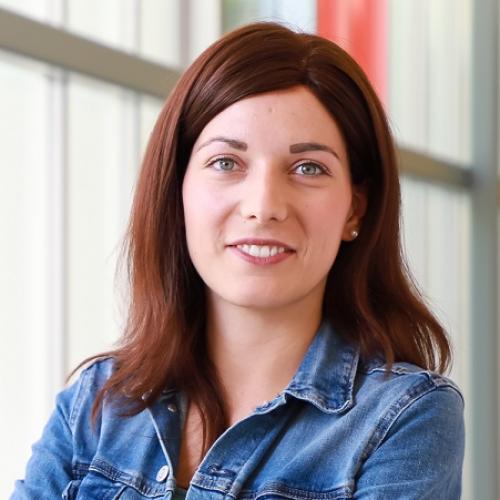
Franziska Graef
PhD Student

Maira Jiménez Sánchez
PhD Student
Immune and inflammatory illnesses, such as inflammatory bowel disease (IBD) and multiple sclerosis (MS), are increasing in Western society due to changes in modern lifestyle: overuse of antibiotics and reduced exposure to sunlight, including ultraviolet B (UVB) light. My work focuses on how UVB light exposure on the skin affects gut homeostasis in mice. Specifically, we want to determine if UVB light exposure can prevent or treat inflammatory diseases such as IBD through vitamin D and the aryl hydrocarbon receptor.
Awards
- CONACYT (Mexican National Council of Science and Technology) PhD award, 2021
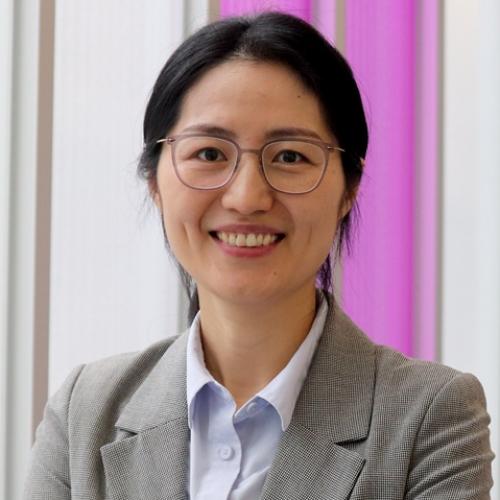
Yan Chen
PhD Student
Our group previously discovered that Toll like receptor 2 (Tlr2) expression by nonhematopoietic cells in mice played an important protective role in the Citrobacter rodentium model of infectious colitis. My research focuses on the novel role of Tlr2 signalling in intestinal epithelial cells by using organoids. Besides, we developed a novel in vitro model of C. rodentium infection to better study the role of IECs in promoting host defence during bacterial infection.
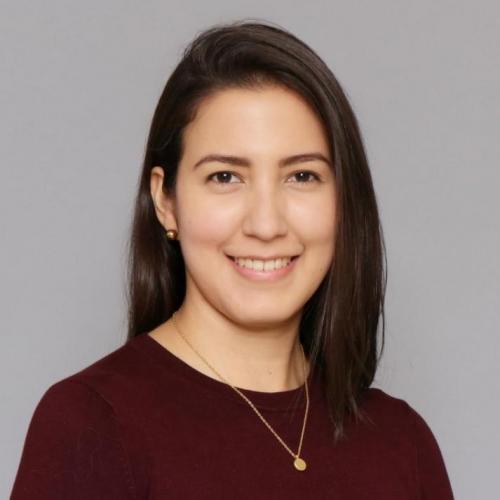
Diana Giron-Ceron
PhD student
I am a clinical microbiologist and medical laboratory scientist with an MSc in Molecular Biology and Biochemistry. Intrigued by host-pathogen interactions and the immune response in infectious and chronic diseases, I joined the Vallance Lab to pursue my doctoral training. My research focuses on ulcerative colitis and the interaction between resident gut microbes and protective immune cells, such as Foxp3+ regulatory T cells (Tregs). To investigate the role of beneficial bacteria and their potential to reduce the risk of ulcerative colitis by modulating the host immune system, I will use genetically modified mouse models of ulcerative colitis and 3D organoids. My doctoral project will explore the timing of early gut microbiota colonization and the development of microbe-based interventions to identify key early-life immunological and microbial factors that mitigate the risk of IBD and prevent disease progression.
Awards
- Four Year Doctoral Fellowship (2024), University of British Columbia.
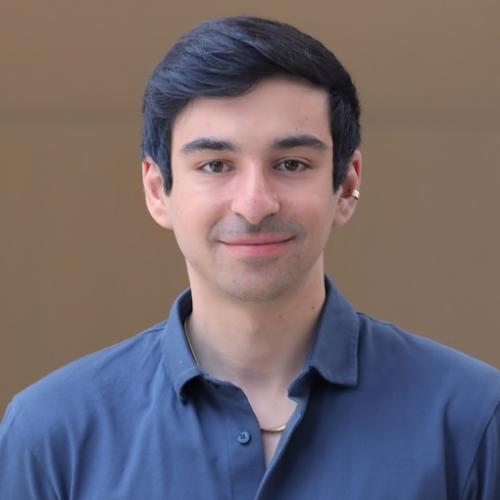
James Sousa
PhD student
I am a PhD student in the Experimental Medicine program co-supervised by Dr. Genelle Lunken and Dr. Bruce Vallance. I came to study at the University of British Columbia after completing an MSc at the University of Calgary exploring the effects of a dietary intervention on macrophage function in patients with Crohn’s disease. My research interest lies in addressing the role of the host-diet-microbiome interaction in Crohn’s disease using techniques such as confocal imaging and intestinal organoids.
Outside of the lab, I am an active member of the local Crohn’s and Colitis Canada chapter and enjoy hiking and playing card games in my free time.

Lanyang Li
PhD student
After earning my master's degree, I spent three years working in the pharmaceutical industry, where I began working with 3D organoids. This experience motivated me to pursue further education, ultimately leading me to join the Vallance Lab. My current research focuses on developing a small intestine air-liquid interface (ALI) model to mimic the in vivo functional characteristics of the small intestine. Additionally, I am investigating the interactions between Enteropathogenic E. coli (EPEC) and the small intestine, specifically how EPEC passes through mucus and utilizes mucin sugars.
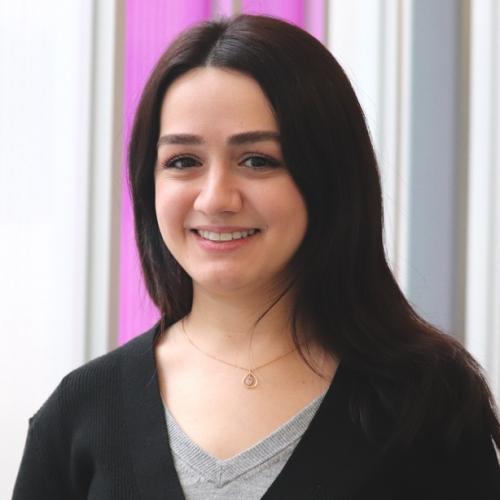
Shokufeh Sorboni
PhD Student
As a microbiologist, I am captivated by the intricate relationship we share with our microbes—partners that have co-evolved with us to play a central role in our health. Maintaining this delicate balance is crucial, as the imbalance, or dysbiosis, is increasingly recognized as a key driver of many diseases. Among the factors shaping our microbial communities, diet plays a significant role, but fasting, with its well-known metabolic benefits, offers a fascinating twist. I am particularly interested in how this unique relationship evolves in the absence of nutrient intake, especially at the intestinal mucosal barrier. After all, what’s a true friendship worth if it doesn’t hold up during hard times? I find it intriguing to see how these loyal microbial companions adapt when nutrient resources are scarce.
In 2023, I was honored to be recognized as one of the top-cited authors by the American Society for Microbiology for my review on the role of the gut microbiome in human neurological disorders, published in the Journal of Clinical Microbiology.

Irvin Ng
MSc Student
My research involves the development of novel bioinformatic pipelines to process and analyze gut microbiome data. I am involved in a fascinating project looking at the effect of diet supplementation on the gut microbiome in toddlers. To that end, I am interested in multi-omic data integration to gain a comprehensive understanding of the gut microbiome. In addition to my research, I also provide bioinformatic support to other lab members, helping them to analyze and interpret their own experimental data.

Clarence Huang
MSc student
I am an Msc student at the University of British Columbia at the Experimental Medicine program. My research focuses on unraveling the intricate interplay between Muc2-linked free monosaccharides and the colonization dynamics of Citrobacter rodentium in the murine intestine. Specifically, I investigate the roles of Galactose, GlcNAc, and NeuNAc in bacterial expansion. My current pursuits include confirming the fitness attenuation of a mutant strain deficient in mucus sugar utilization and exploring the individual and collective impacts of Muc-2 sugars.

Caixia Ma
Lab Technician
My role in the lab involves taking care of the daily operations. My area of research interest is to make various bacteria mutant strains for in vivo mouse experiments in order to study inflammatory response in the intestine.
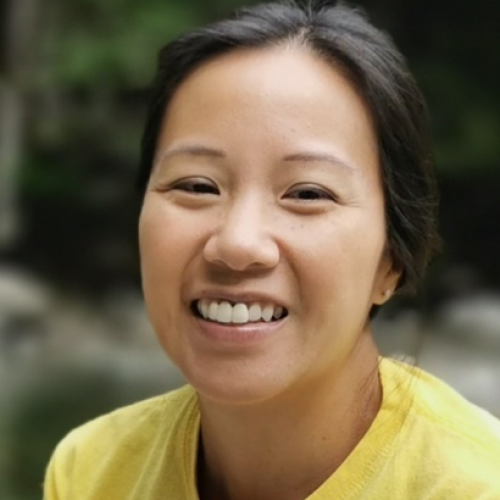
Dr. Catherine Chan
Lab Technician
Dr. Cathy Chan obtained her PhD from the University of Calgary where she studied membrane protein biochemistry of microbial systems. She continued her post-doctoral research at the University of British Columbia studying bacterial secretion systems and membrane proteomics. This was followed by a second fellowship studying anti-inflammation signalling pathways in mice as she wanted to learn more about animal models and immune systems. After an extended maternity leave with her amazing daughter, she joined a biotech company developing novel antibody-based therapeutics to combat animal gastrointestinal diseases. Her expertise in biochemistry and microbial systems is a valuable addition to the continued development in the at Gut4Health.

Mariana Hill (mat. leave)
Lab technician
One of the most innovative breakthroughs in stem cell research in the past decade has been the development of 3D organoid models. These in-vitro systems provide a biologically relevant model which highlights important characteristics of human organs which has allowed us to study cell-to-cell roles and interactions previously unknown. In the lab, I get to work with the newest techniques for establishing and maintaining enteric organoids from paediatric and adult tissue samples to provide a model to study Inflammatory Bowel Disease. I also support students with their research by assisting with the collection of mouse intestinal tissues which are used to grow enteric organoids for comparative model analysis. Additionally, I am responsible for the culture and care of other cell lines used in the lab to produce biological compounds. Finally, I ensure protocols are updated and followed by lab members to promote experimental repeatability and safety within the lab. Outside the lab I am a fan of bird watching and going for long walks, and I am always in search of a new podcast or audiobook to keep me entertained.
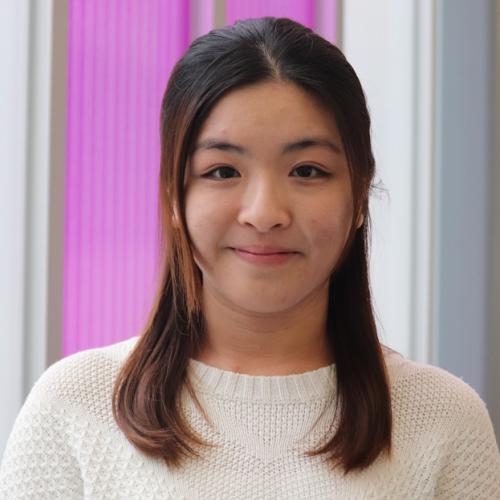
Sandy Lai
Lab technician
My work focuses on the development and maintenance of 3D intestinal organoids as a model to investigate Inflammatory Bowel Disease (IBD).
Past Team Members
Postdoctoral Fellows
Dr. Deanna Gibson
Dr. Marinieve Montero
Dr. Yanet Valdez
Dr. Lisa Mansson
Dr. Maryam Zarepour
Dr. Martin Stahl
Dr. HT Law
Dr. Vijay Morampudi
Dr. Joannie Allaire
Dr. Travis De Wolfe
Dr. Genelle Lunken
Dr. Kevin Tsai
Graduate Students
Dr. Kirk Bergstrom
Dr. Natasha Ryz
Dr. Shauna Crowley
Dr. Else Bosman
Dr. Kiran Bhullar
Dr. Ganive Bhinder
Dr. Mohammed Khan
Mr. Justin Chan
Dr. Vivian Han
Jocelyn Chan
Matthias Mslati
Research Associate
Dr. Hongbing Yu
Technician and Visiting Scientist
Dr. Alana Schick
Dr. Adi Eindor
Julia Lee
Dr. Qin Yu
Tina Huang
Janelle Cheung
Funding support
Research in the Vallance Lab is supported by the following grants:
- CIHR Team Grant
Role of microbes in the pathogenesis of PIBD: From discovery, through causation, to novel treatments (2019) - CIHR
Colonic goblet cells: Active players in host defense and mucosal protection? (2016) - SIGIRR
Preserving gut defense by suppressing epithelial TLR/IL-1R signaling (2018)
Colonic goblet cells and mucus: Defining their roles in host defense and mucosal protection (2021) - NIH
Epithelial intrinsic inflammasomes direct host defense against gut microbes (2018) - Genome Canada
Microbiome-based precision medicine in inflammatory bowel disease (2019) - NSERC
Defining a novel skin-gut axis that controls immune and microbial homeostasis in the mammalian GI tract (2018) - Crohn’s and Colitis Foundation
Bacterial pathobionts and ulcerative colitis: Causation to novel therapies (2019) - Weston Family Foundation
Characterizing the Gut Microbiome in Patients during COVID-19 Infection (2020)